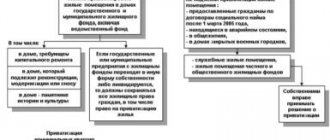Home > Protection of shareholders > Support of the transaction for the assignment of the right of claim under an agreement for participation in shared-equity construction of an apartment building
Some citizens purchase apartments on the primary real estate market for investment purposes for their subsequent resale and profit. But there are also situations when, for some reason (for example, the shareholder found a more advantageous offer with a small additional payment),
By the time the construction of an apartment building is completed, the owner’s need for a shared construction project disappears and he puts it up for sale.
Since huge amounts of money are circulating in the new buildings market, this will always attract intermediaries in the person of all kinds of “realtors” (intermediaries)
and unscrupulous citizens who seek to profit from the trust and inexperience of buyers. If in the first case we are talking about “services” that can be valued at up to 10% of the value of the property for “selecting an apartment,” then in the case of fraud, the new buyer may even lose his apartment and money.
Developers, who never cease to improve their DDUs, do not miss the opportunity to “make money” from equity holders. Currently, unscrupulous construction companies stipulate in contracts for participation in shared construction the obligation of the shareholder to agree with them on the assignment of rights of claim to the shared construction project and to obtain appropriate permission from them. Of course, not for free. The cost of such “permits” can be up to 10% of the contract price, which is not so little even taking into account the increased cost of the apartment.
At the same time, according to the current legislation of the Russian Federation, the participant in shared construction does not have the obligation to agree with the developer on the assignment of the purchased apartment (subject to his fulfillment of the obligation to pay in full the price of the shared construction agreement)
and even more so pay money for it. The shareholder must only notify the developer that he has assigned the apartment to a third party by sending documents confirming the fact of the transaction to the construction organization.
It is very difficult for a shareholder who is far from legal science and the nuances of real estate transactions to see problematic issues in the DDU and in the assignment (assignment) agreement.
Most often, home buyers do not involve professional lawyers in supporting real estate transactions, but sign contracts after briefly reviewing them and believing the abstract phrases of the seller/developer manager.
note
The most important thing when buying an apartment by assigning rights of claim is unconditional confirmation that the seller has the rights that are being assigned.
Some nuances of purchasing an apartment in a new building under an assignment of claim agreement
- The seller is not responsible for the actions of the developer, since he only acquires the right to claim from the developer of the shared construction project; Accordingly, the buyer can make all claims under the DDU only to the developer, and not to the assignor (seller).
- In the event of termination of a shared participation agreement in construction, the new participant in shared construction can only count on the developer returning the contract price (specified in the DDU),
and not the entire amount paid by him under the assignment agreement to the seller. - Payment under the assignment agreement should be made only after the transfer of the right to claim the apartment to a new participant in shared construction (at the same time, to protect the seller, clauses can be added to the contract declaring the transaction invalid in the event of failure to pay on the part of the buyer within the prescribed period).
- If the apartment was initially purchased by the original buyer using mortgage funds and it has not been fully repaid, then it
is not possible (bank) - The assignment of rights of claim to a shared construction project is possible only before the signing of the transfer and acceptance certificate between the shareholder and the developer or the recognition of ownership of the apartment in court.
- If several owners in the form of spouses appear in the DDU as participants in shared construction, then for the assignment of the apartment, as well as for other transactions with it, a notarized consent of both spouses to the transaction is required.
- The main document confirming the right of the seller (participant in shared construction)
to an apartment in a new building is a shared participation agreement
(DDU),
which must be registered with Rosreestr, just like an agreement on the assignment of the right to claim an apartment
(assignment agreement).
Is an agreement on participation in shared construction an agreement on the division of property?
When dividing the rights of claims under an agreement for participation in shared construction , the courts usually proceed from the fact that payment for the apartment is made at the expense of the spouses’ common property. And, accordingly, they divide the property rights to the apartment equally between the spouses. But what if the agreement with the developer already defines the shares of the spouses? Will they be kept between spouses?
In practice, there are different approaches of courts to resolving this issue. In most cases, the courts decide to retain for the spouses the proportion of shares that is established by the DDU. They qualify an agreement for participation in shared construction as an agreement on the division of property: since both spouses sign the agreement with the developer and distribute shares in the apartment among themselves, then the common joint property is transformed into common shared property.
In more rare cases, the courts still recognize the regime of common joint ownership of the apartment, despite the shares of the spouses established in the DDU. This position is explained by the fact that the agreement for participation in shared construction is neither a marriage contract nor an agreement on the division of property of the spouses, which can change the legal regime of the property of the spouses.
The lawyers of MOKA “Legal Protection” can help you understand your specific situation and determine how the rights of claim to your apartment should be divided.
“Pitfalls” when assigning the right to claim a shared construction project for the seller
The most common problem faced by sellers of primary real estate when transferring an apartment in a new building is the inclusion by developers of clauses in the DDU that oblige the shareholder to obtain approval (permission)
construction company for the assignment of the right to claim a shared construction project to a third party.
If the condition on the need to agree on the assignment of an apartment is specified in the contract, then this does not contradict the current legislation of the Russian Federation, however, it is unfair in relation to participants in shared construction, who are actually deprived of the opportunity to fully dispose of the apartments purchased from the developer.
As a result of the inclusion of such clauses in the contract, a participant in shared construction who wants to assign his apartment to a third party may be faced with a situation where the developer offers him to pay a certain amount of money for “permission” and/or “registration” of the assignment. The cost of such services can reach up to 15 or even more percent of the contract price.
For example:
If the contract price is 5,000,000 rubles, the seller will be forced to pay the developer 750,000 rubles.
Universal advice in order to avoid such “extortions” on the part of the developer is the refusal of the potential shareholder to sign an agreement with such a clause (in some cases it is possible to agree with the developer to exclude such a clause from the DDU),
or challenging these clauses of the contract in court.
Pitfalls of assignment by assignment
The assignment of rights of claim under an equity participation agreement is the safest transaction; the assignment is registered. But in general, when making a concession, there are various risks. Let's look at the main ones.
- When registering a transfer of rights not under the DDU, but to another type of agreement - for example, a purchase and sale agreement - it will no longer be registered, which means there is a risk that the buyer will receive housing already purchased by someone else.
- An agreement for the assignment of equity participation in construction requires receiving from the buyer not only a certificate confirming that the developer has no financial claims against the shareholder, but also all financial documents, including a reconciliation report for payments made. Then it will be clear whether the seller has debts to the builders. They will not be an unpleasant surprise for the buyer.
- The failure to conclude a contract of agreement is the main reason for declaring a transaction on the assignment of rights invalid. To confirm the rights of the seller, you can obtain an extract from the Unified State Register.
- When the assignment agreement has already been concluded, claims against the seller regarding the insolvency of the developer or problems with the construction of the house are impossible.
Useful tips for the seller when transferring an apartment in a new building
- It is recommended to completely abandon cash payments when carrying out real estate transactions, since scammers can easily slip counterfeit bills or even blank sheets of paper cut to the size of money (so-called “dolls”) into wads of money.
If the seller decides to receive a suitcase of cash, then it is strongly recommended to check it in a credit institution
(bank)
using specialized equipment and accompanied by a “support group”, at least in the person of close relatives and friends. - Despite the fact that safe deposit boxes are often used in real estate transactions, this type of mutual settlement is very risky for both the buyer and the seller of the apartment. You need to be especially careful when putting money into a safe deposit box, require an inventory of the contents (which not all banks provide),
and also carefully study the lease agreement for a safe deposit box, which can be fraught with a huge number of pitfalls. One “insignificant”, in the opinion of an inexperienced seller, clause in the contract can instantly leave him without apartments and money. - The most reliable and safe way to sell an apartment is an irrevocable bank letter of credit, however, even with this option, possible fraud, which may be hidden in the terms of a tripartite agreement, cannot be completely ruled out. When using this type of transaction, it is necessary to involve a specialized lawyer and consult with bank employees, as well as choose a reliable bank (a well-known name in this case does not guarantee that everything will be in order).
Ultimately, this will be much cheaper than many years of futile litigation. - You should always sign only one document (possibly in several copies)
confirming that the seller has received funds from the buyer. Signing several documents confirming the receipt of funds can be a fraudulent trick that will result in loss of funds and lengthy legal proceedings. - In the agreement for the assignment of the right to claim a shared construction project, it is strongly recommended to include conditions according to which the transaction would be declared invalid in the event of failure to pay the contract price within the period established by the agreement. Such formulations should not frighten a conscientious buyer of real estate, but they will certainly scare off possible scammers.
How to protect yourself from fraud when transferring an apartment in a new building?
First of all, make sure that the assignment agreement (assignment of the right of claim)
is drawn up legally correctly and does not contain any pitfalls.
Payment for the assignment agreement is made only after its state registration (this is a legal requirement).
Choose only a reliable and safe method of mutual settlements for the transaction.
Do not skimp on the services of professional realtors and lawyers, since the cost of their services is much lower than the possible loss of your movable and immovable property. Ask a Question
Initial purchase of an apartment in a new building through assignment from a third party
There are cases when developers, even at the excavation stage, sell part of the apartments wholesale to legal entities or individual entrepreneurs (most often subsidiaries),
who, after waiting a certain period of time, put up shared construction projects for sale under assignment agreements.
Such situations are relevant for objects that are attractive from an investment point of view (with a good location of a residential complex, high quality construction and successful layouts),
in other words, on the tidbits of the real estate market
(of which there are not so many).
Despite the fact that such a sales scheme is absolutely legal, a potential buyer of a shared construction project should be as careful as possible with regard to the set of documents provided by the seller, which is often very meager. At the same time, the new shareholder needs to track the entire sales chain from the original seller (developer)
to the final seller (assignor) and check the legality of all transactions. Otherwise, the “lucky” owner of the property risks being left without an apartment and money.
The minimum set of documents for review by a new shareholder when purchasing an apartment from a third party on assignment:
- agreement for participation in shared construction of an apartment building (as a document confirming the seller’s right to claim a shared construction project);
- all additional agreements to the agreement for participation in shared construction (which may contain significant changes and new conditions);
- all assignment agreements (assignment of claims)
concluded between the developer and/or previous participants in shared construction; - additional agreements to assignment agreements (if any);
- reservation agreements and any agency agreements concluded by the developer or assignors;
- permission to build an apartment building, a land lease agreement (or a document confirming ownership of a land plot),
project declarations with all amendments and other documents to verify the reliability of the construction company; - documents confirming full payment of the price of the shared construction agreement, as well as full payment of concluded agreements for the assignment of rights of claim to a shared construction project (payment orders, check orders, acts of mutual settlements between the parties, certificates of payment from the developer and/or other apartment sellers participating in the chain) ;
- an extract on the property from the Federal Service for State Registration, Cadastre and Cartography, which you can order yourself (to verify the copyright holder and the absence of possible encumbrances).
A significant disadvantage of such real estate transactions is a large set of documentation, which must be collected and studied by the buyer or a person involved on his part before acquiring the right to claim the apartment. Particularly problematic in this regard are shared construction projects that have been assigned several times. It should be borne in mind that violation of agreements between previous sellers and buyers of the apartment may lead to the recognition of the assignment as invalid in court.
Assignment under a share participation agreement in construction - details of registration
According to Federal Law No. 214 and the Civil Code, a transaction of assignment of rights in shared construction can be performed under certain conditions. Assignment under the DDU is possible before the acceptance and transfer of the apartment is completed. When the deed is signed, the shareholder is no longer the debtor of the developer.
- After registration of the assignment, the acquirer of the right begins to fulfill the terms of the agreement, and if, for example, the shareholder has not made all payments to the construction company, then he will have to make them.
- The assignment of rights of claim under an equity participation agreement involves the signing of an assignment between the shareholder and the recipient of the right. Any other forms of documents are illegal.
The DDU may stipulate under what conditions the right of claim may be assigned. There can be two approaches:
- The assignment of rights is carried out upon payment of the entire contract price. The entire cost of housing is paid to the developer by the initiator of the assignment agreement, and then assigns the right to housing.
- The remaining share under the DDU is paid by the new shareholder. Essentially, the name on the contract changes. The recipient of the right of claim begins to execute it.
Important!
The assignment agreement requires registration with the Federal Registration Service (FRS). Otherwise it will be considered not concluded.
How an assignment under an equity participation agreement is formalized: transaction algorithm
Any real estate transaction requires the help of a specialist, but cession in particular. Due to its specificity. What exactly must a shareholder do in order to assign the right of claim to a new building? He has a number of steps to take, accompanied by a lawyer:
- conclude a preliminary agreement on signing an agreement for the assignment of equity participation in construction with the second party;
A preliminary agreement is a document whose purpose is to establish the terms of the transaction for the assignment of rights. It is better to entrust its preparation to a lawyer. But in a few words we will say what mandatory items should be contained in it.
- A detailed description of the apartment being transferred - all its characteristics, cost, area, floor, number of rooms...
- Deposit size. It is contributed by the acquirer of the right of claim;
- Responsibility of the parties in case of non-compliance with the assignment agreement;
- send a notice to the developer of the desire to assign the right of claim;
- obtain consent from the developer for the assignment. Without it, the deal will be considered unconcluded;
- obtain permission from the bank if the seller is a borrower and has a mortgage;
- obtain an extract from the Unified State Register of Real Estate on the seller’s right to housing;
- You can receive payment for the assignment of rights after registering the assignment;
- prepare an agreement for the assignment of equity participation in construction;
- submit papers to Rosreestr, MFC; then receive the registered document;
- Upon assignment, the DDU is transferred to the acquirer of the right of claim.
When the buyer agrees to pay the remaining debt to the developer, an agreement on the transfer of debt must be concluded between the assignor and the assignee.
If the assignment agreement is declared invalid, the buyer can demand the return of personal funds and losses incurred or go to court, which will decide who is right.
Important!
It happens that the developer does not participate in the assignment of property rights. But there are also cases when the condition for the company’s participation is in the DDU. It is mandatory even if the assignor has not yet paid all the funds to the developer.
Call us by phone!
Cost of services to support the transaction of assignment of the right to claim an apartment in a new building
Each clause in the assignment agreement and in the bank letter of credit agreement must be clearly verified, since every “minor” wording can turn into a real disaster for the seller and/or buyer of the apartment upon assignment of the DDU. In case of fraudulent actions, an inexperienced seller or buyer risks being left without money and an apartment, and in the vast majority of cases, it will be almost impossible to get the money or apartment back. When carrying out assignment transactions, it is strongly recommended that they be accompanied by professionals.
| № | Name of service: | Service cost: |
| 1 | Support of the transaction of assignment of the right to claim a shared construction project under an agreement for participation in shared construction on a turnkey basis (from drawing up and agreeing on an assignment agreement to payment and transfer of the right to a new buyer) | from 20,000 rubles (depending on the complexity of the transaction) |
| 2 | Initial legal consultation on the issue of transfer of the right of claim to a shared construction project | For free |
| 3 | Comprehensive inspection of a shared construction project / apartment building / residential complex / developer (using open and closed sources) | from 6,000 rubles |
| 4 | Collection and verification of a set of documents necessary for conducting a transaction to transfer the right to claim an apartment | from 5,000 rubles |
| 5 | Drawing up and/or adjustment of an assignment agreement (assignment of the right of claim) for a shared construction project | from 5,000 rubles |
| 6 | Registration of the assignment agreement with the Federal Service for State Registration, Cadastre and Cartography | from 2,000 rubles |
| 7 | Coordination of the transfer of a shared construction project with the bank in case of an outstanding mortgage loan (when transferring the debt to a new shareholder) | from 10,000 rubles |
| 8 | Coordination and/or adjustment of a bank letter of credit agreement | from 5,000 rubles |
| For the possibility of providing other types of services related to the assignment of rights of claim to an apartment, please check with our contacts. | ||
Payment for services to support the transaction for the assignment of the right of claim to a shared construction project is made upon successful completion of the transaction.
Order service
Additional costs when acquiring / transferring the right to claim an apartment
- opening of an irrevocable bank letter of credit (according to the tariffs of the credit institution);
- state fee for registration of an assignment agreement (assignment of the right to claim a shared construction project)
– 350 rubles on the basis of Art. 333.33 Tax Code of the Russian Federation; - power of attorney for a representative of the assignor or assignee in credit institutions, Rosreestr, the developer and other organizations and authorities (on average 1,500 rubles per piece);
- paid statements and certificates required to complete a transaction (according to organizational tariffs);
- photocopying of documents for legal proceedings (on average 10 rubles / page);
- production of notarized copies of documents (from 50 rubles per page).
You may also be interested in our other services:
Support of real estate transactions
Guarantee of successful purchase of an apartment in a new building, minimization of risks and reliable protection against possible fraud.
Collection of penalties from the developer in arbitration
As well as 50% of the consumer fine and compensation for losses in full without reduction based on Art. 333 of the Civil Code of the Russian Federation under the assignment agreement.
Recognition of property rights
For completed and unfinished shared construction projects in case of problems with the developer in court.
Termination of a share participation agreement
As well as the collection of interest for the use of the shareholder’s funds, consumer fines, expenses and losses.
Assignment of the right of claim in certain cases
Sometimes the assignment of the right of claim is impossible or difficult. For example, if the apartment was purchased with a mortgage, maternity capital was used, or when the owner is a minor child.
Important! The specifics of the assignment of rights must be specified in the agreement on shared participation in construction. Some developers require that shareholders obtain their consent before selling, since in fact one shareholder is being replaced by another. If there is no such clause, it is enough to notify of your intentions.
Mortgage apartment
Banks rarely approve mortgages for apartments under DDU, and if they do, it is only when purchasing real estate from friendly companies. To formalize the assignment agreement in the future, you need to repay the mortgage debt in full. The bank will remove the encumbrance, and only after that the agreement can be registered.
The second option is to replace the borrower. Lenders are reluctant to do this. It is important for them that the other borrower meets all the requirements for credit history and income level. If the bank approves the replacement, a mortgage agreement is drawn up with the new borrower, and the DDU is re-registered in his name.
If maternity capital was used
It is impossible to sell an apartment that has not yet been built, for the purchase of which maternal capital was used, due to Part 4 of Art. 10 Federal Law dated December 29, 2006 No. 256-FZ. By law, the owner of the certificate is obliged to allocate shares to all family members within six months after the housing is put into operation. But, if the apartment has not yet been built, the allocation of shares is impossible, as is the sale without this.
Note! Many sellers “forget” about the obligation to allocate shares to spouses and children. After the sale of real estate purchased with maternal capital without allocating shares, there is a chance that the transaction will be challenged by the guardianship authorities, spouse or children upon reaching adulthood.
If a minor is indicated in the DDU
If a minor child is included in the child protection system, the assignment of the right of claim or sale of real estate is possible only with the permission of the guardianship authority. Parents must receive it after finding another replacement home that will meet all the requirements.
Are you planning a deal to buy or sell an apartment?
Lawyers will answer any question regarding the transaction free of charge and in detail. Ask a question so you don't waste time reading!









